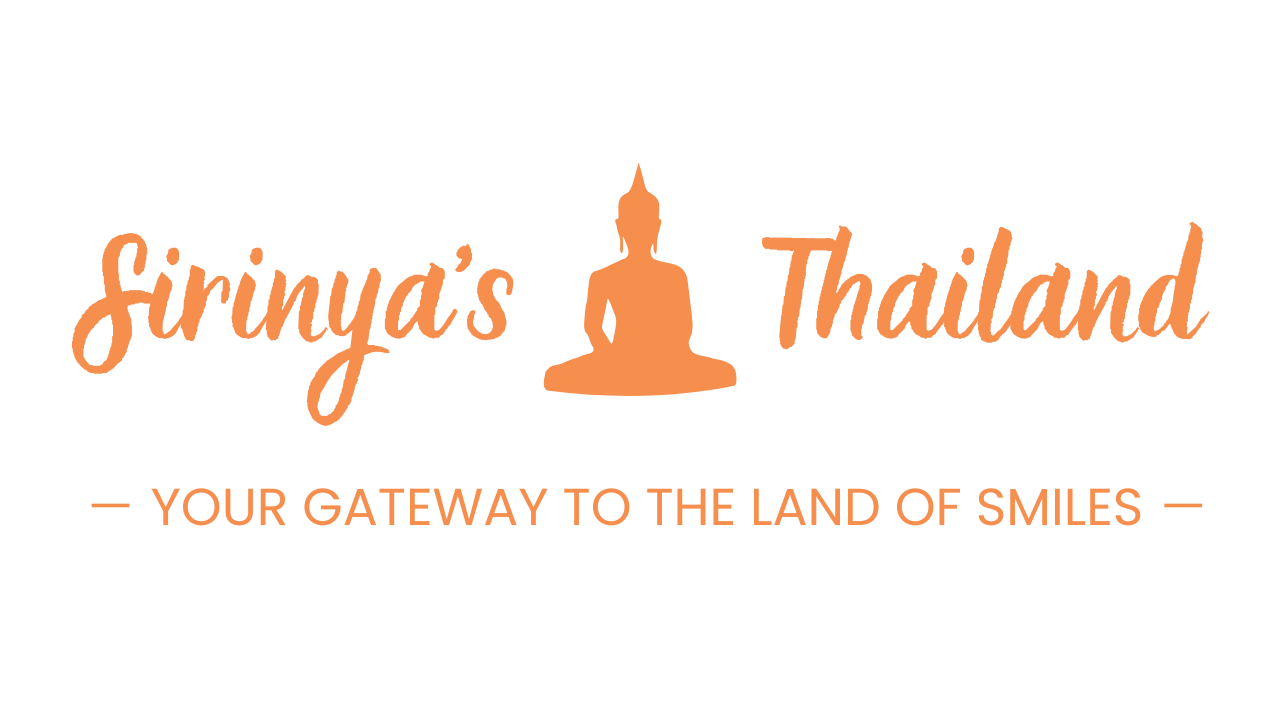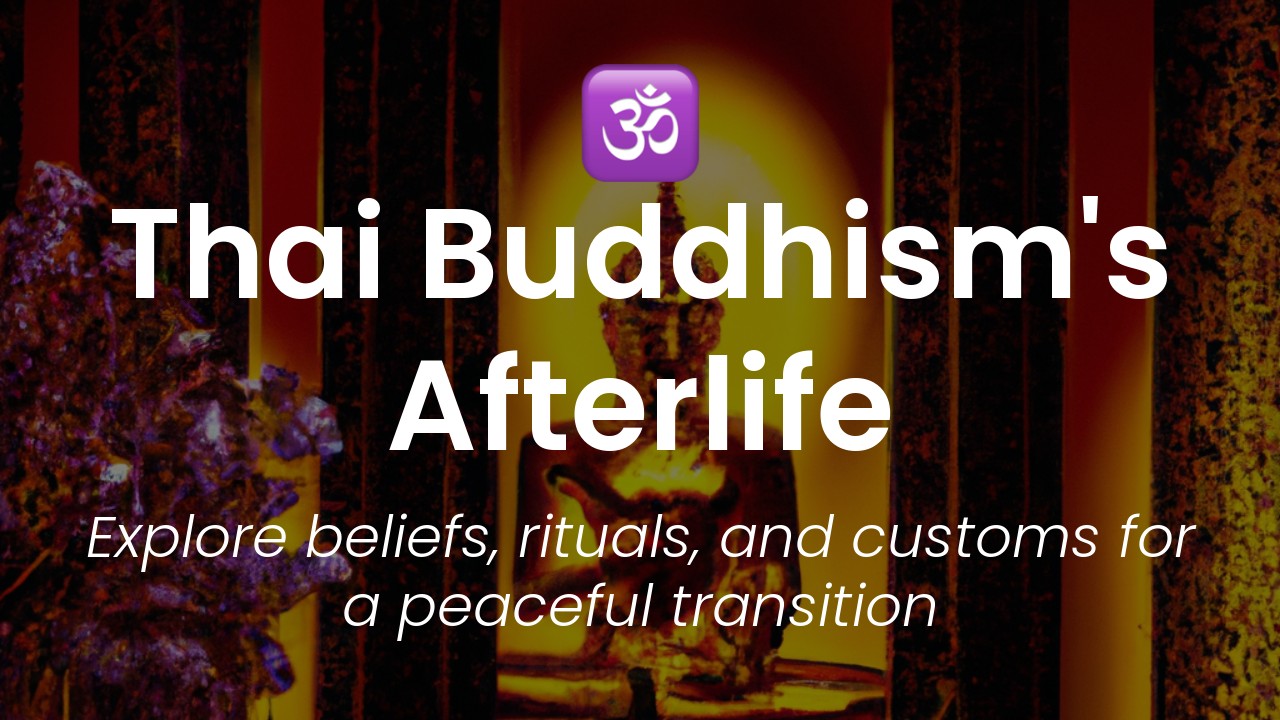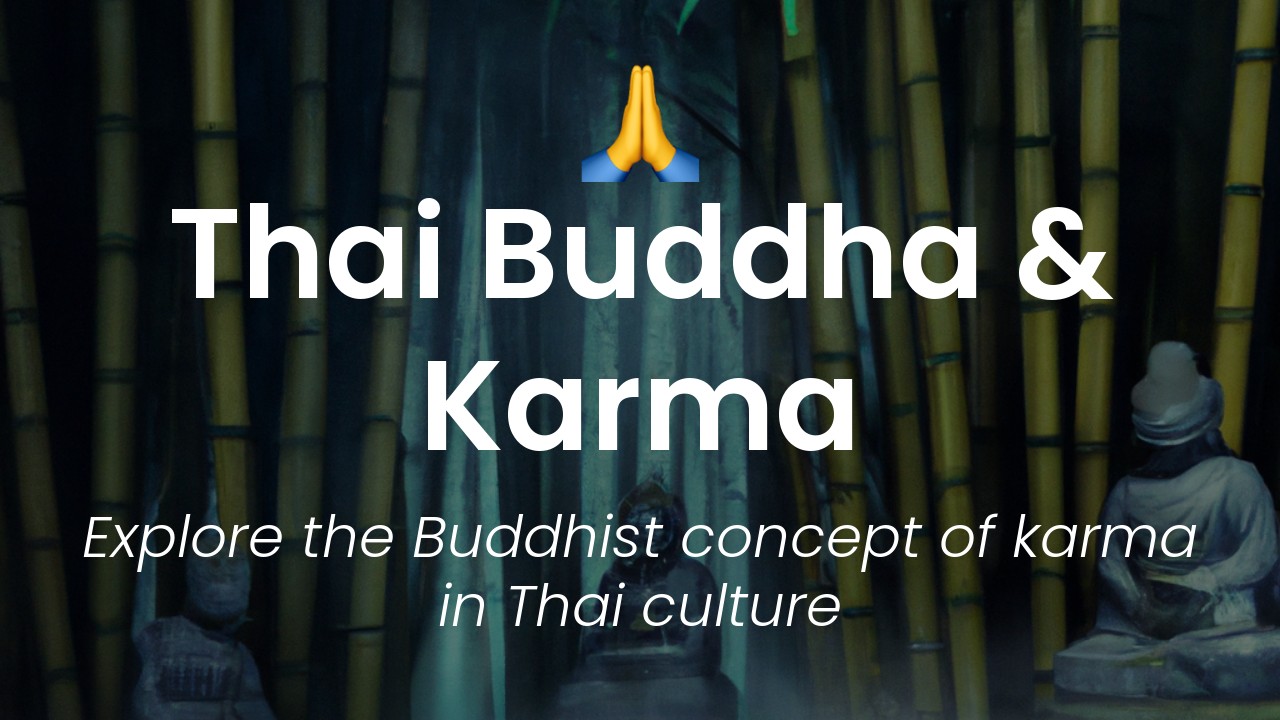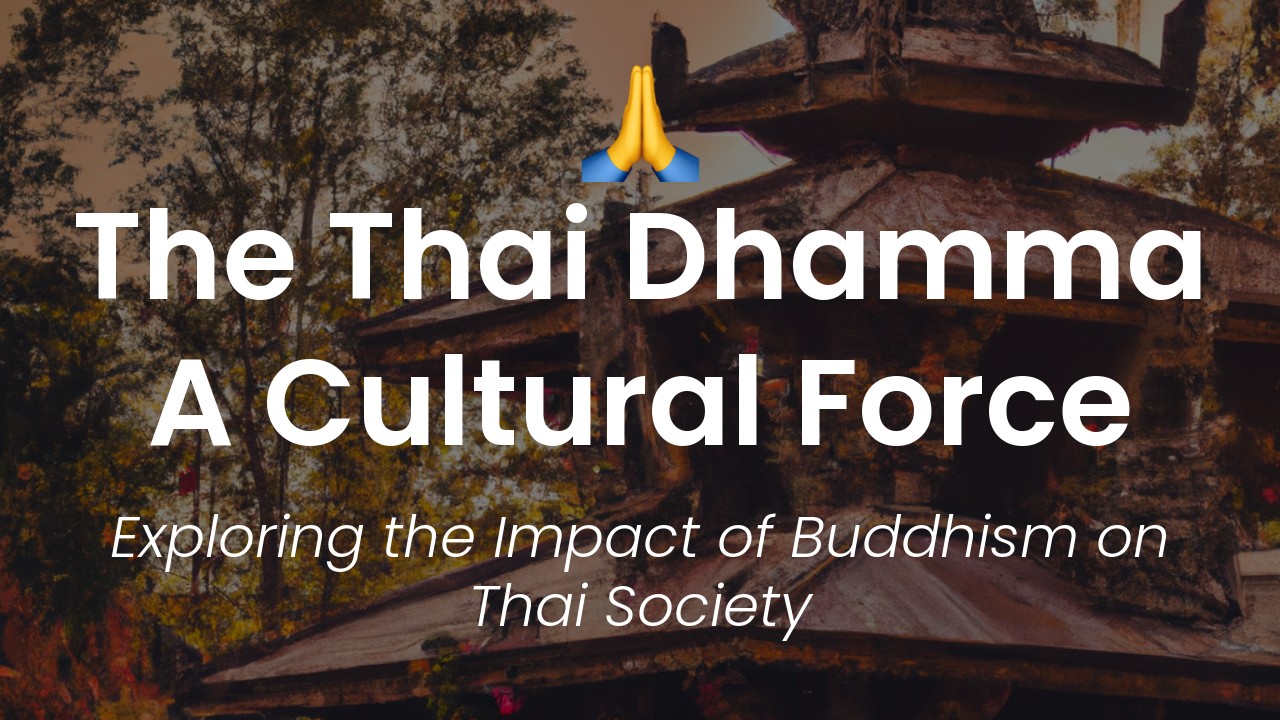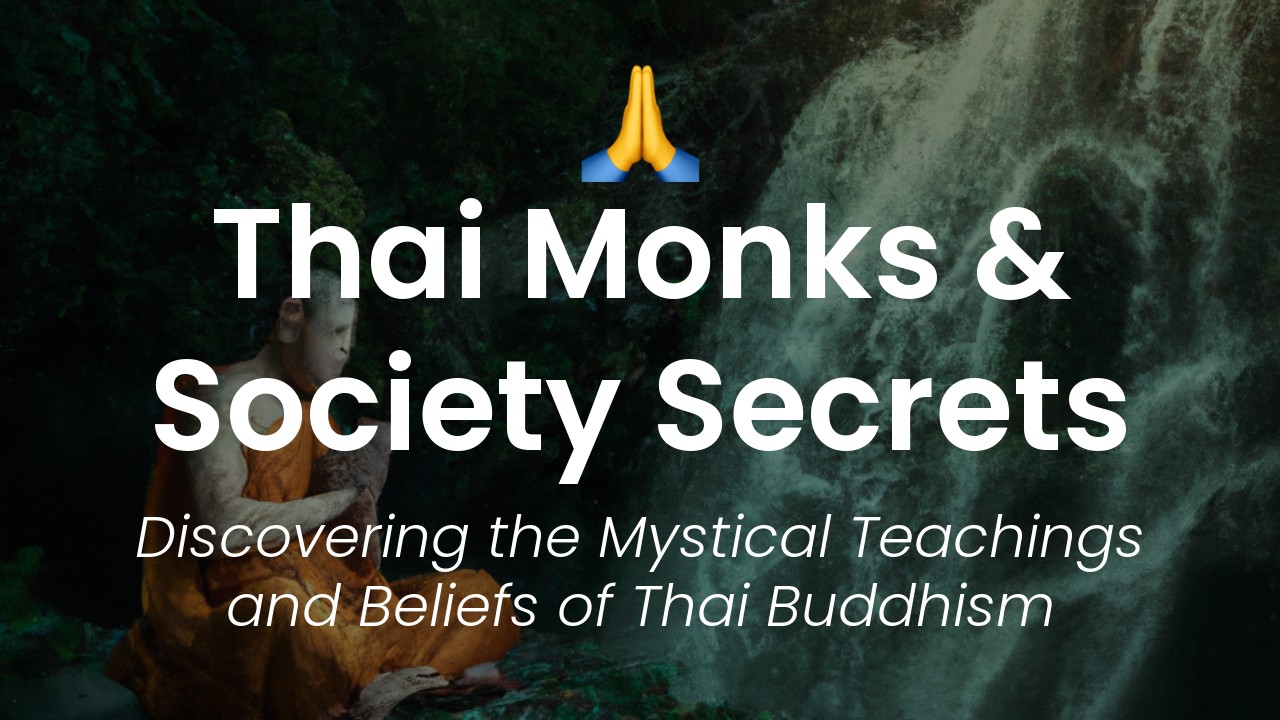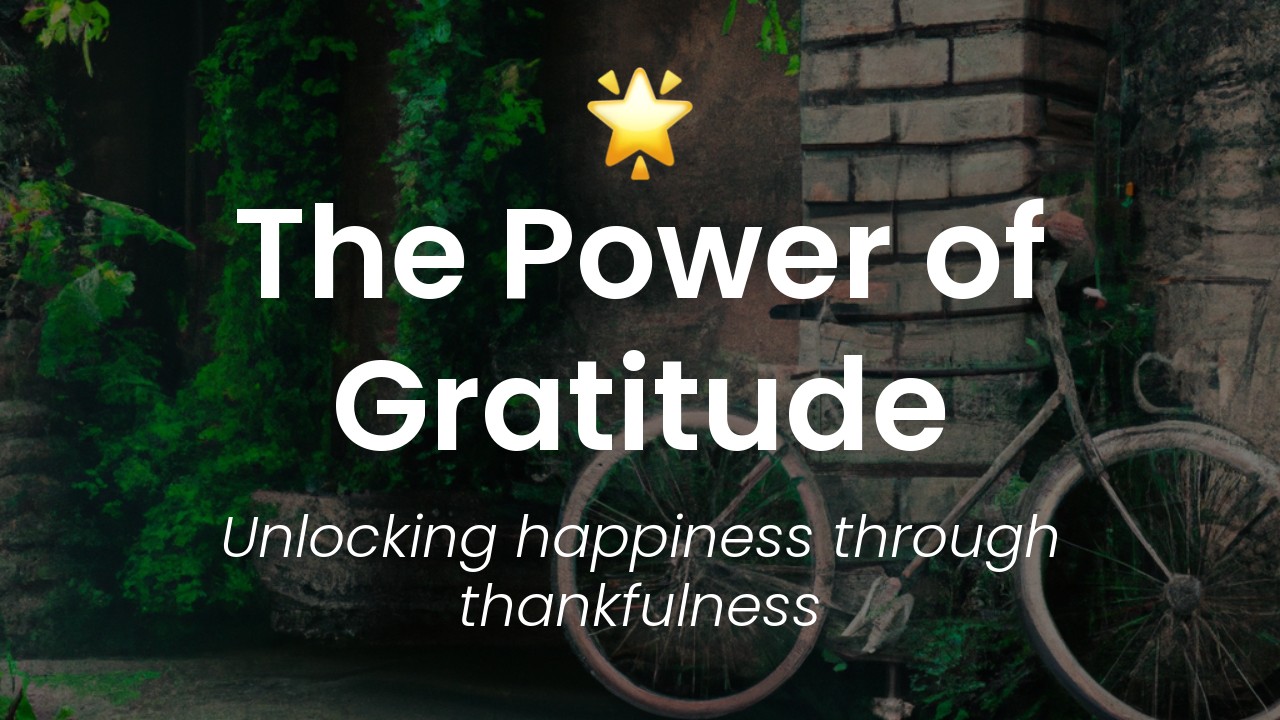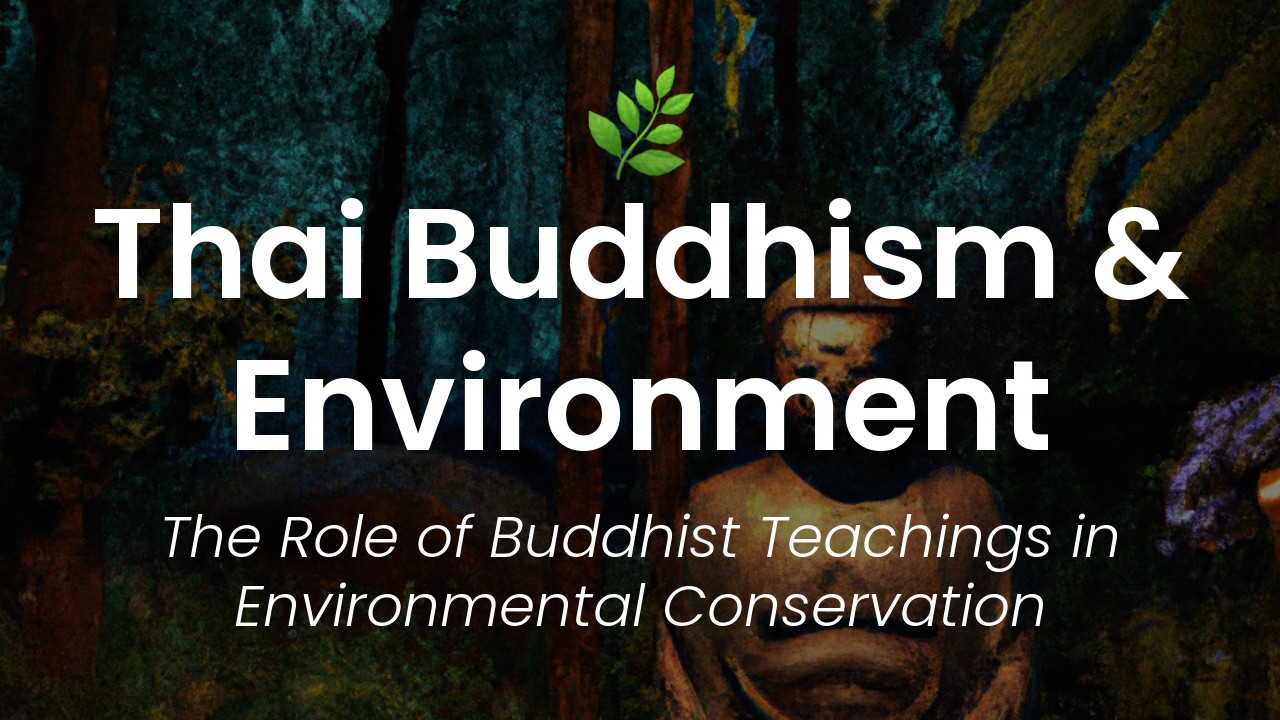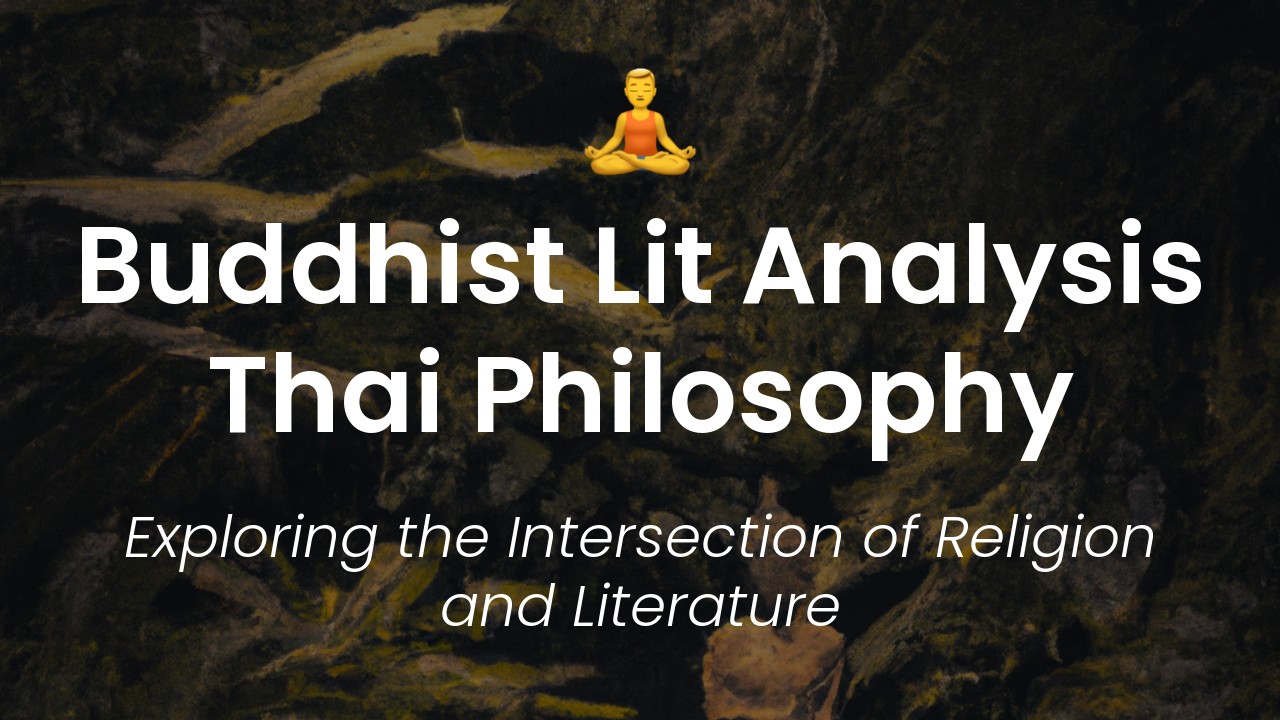As a Thai person, I grew up hearing stories of the afterlife, or สวรรค์ (sawan) in Thai Buddhism. In Thai culture, death is not seen as an end, but rather the beginning of a journey into the afterlife. This idea is deeply ingrained in Thai Buddhism, which believes in reincarnation and karma – the idea that one's actions in this life will determine their fate in the afterlife.
While the concept of the afterlife may seem daunting to some, Thai Buddhism offers a unique perspective on what happens after death. It is a world full of wonder, beauty, and immense possibility. There are countless stories of those who have crossed over into the afterlife and returned with tales of their adventures.
In this article, I want to take you on a journey into the wonders of Thai Buddhism's afterlife. We will explore the different realms of the afterlife, the beings that inhabit them, and the beliefs and practices that shape them. In doing so, we will gain a deeper understanding of Thai Buddhism and the unique way it views death and the afterlife. So, sit back, relax, and get ready to be transported into a world of magic and wonder – let's begin our journey into the afterlife.
Reincarnation and Karma
Thai Buddhism's afterlife is an important and fascinating topic, as it explores the beliefs and practices around reincarnation and karma. The concept of reincarnation in Thai Buddhism is based on the idea that the soul or consciousness is reborn after death into another form of existence. This can include being reborn as a human, animal, or even a spirit.
The belief in reincarnation is closely related to the belief in karma. According to Thai Buddhism, karma is the law of cause and effect. This means that any actions or thoughts, good or bad, will have consequences in this life and the next. The accumulation of good or bad karma will determine the quality of the next life, whether it's positive or negative.
For many Thais, the concept of reincarnation and karma is not just a religious belief, but also a way of life. By being mindful and doing good deeds, one can accumulate positive karma and have a better rebirth in the next life.
The Concept of Heaven and Hell
Like many religions, Thai Buddhism has a concept of heaven and hell, but with some unique twists. The Thai version of heaven and hell is based on a hierarchy of deities and demons. There are 31 levels of heaven and 136 levels of hell, each with their own ruler and inhabitants.
In Thai Buddhism, however, the concept of heaven and hell is not permanent. Rather, they are temporary states that the soul can enter depending on their karma. A soul with positive karma may enter a higher level of heaven, while a soul with negative karma may enter a lower level of hell.
The Importance of Merit-making
Merit-making is an integral part of Thai Buddhism and its afterlife beliefs. Merit-making involves doing good deeds that accumulate positive karma. This can include making offerings to monks, helping others, and even meditation.
The accumulation of merit is believed to improve one's chances of a better rebirth and entry into higher levels of heaven. It's also believed that the positive karma from merit-making can benefit not only the individual but also their ancestors and loved ones.
The Ceremony of Sending Off the Deceased
The ceremony of sending off the deceased is an important part of Thai Buddhism's afterlife beliefs. This ceremony is typically performed by monks and involves chanting, prayers, and offerings to the deceased.
The purpose of this ceremony is to help the deceased transition into their next life and to accumulate positive karma. It's also believed that the ceremony can help ease the suffering of the deceased and their loved ones.
The Belief in Ghosts and Spirits
Thai Buddhism's afterlife beliefs also include a strong belief in ghosts and spirits. The belief is that spirits can linger in the human realm after death and can have an impact on the living. These spirits can be helpful or harmful, depending on their nature and intentions.
To protect oneself from harmful spirits, many Thais will perform rituals and make offerings to appease them. This can include offerings of food and incense or even building spirit houses to provide a place for the spirits to reside.
The Role of Monks in the Afterlife
Monks play an important role in Thai Buddhism's afterlife beliefs. They are believed to have the ability to assist the deceased in their transition to the next life and accumulate positive karma.
Monks often perform ceremonies, prayers, and rituals to help the deceased and provide comfort to the living. They are also seen as spiritual leaders and guides who can help individuals on their own path towards enlightenment and better karma.
The Influence of Thai Buddhism on the People
Thai Buddhism's afterlife beliefs have a significant influence on the culture and people of Thailand. The beliefs shape the way many Thais live their lives, from their daily actions to their thoughts and intentions.
The emphasis on merit-making and accumulation of positive karma has led to a strong tradition of generosity and kindness in Thai society. The belief in reincarnation and the concept of heaven and hell also provide comfort and a sense of purpose to many Thais, as they strive towards a better rebirth and ultimately enlightenment.
Overall, Thai Buddhism's afterlife beliefs offer a unique and fascinating perspective on the journey of the soul beyond death. Through reincarnation, karma, and merit-making, Thais are able to navigate the complexities of the afterlife and strive towards a positive and fulfilling next life.
